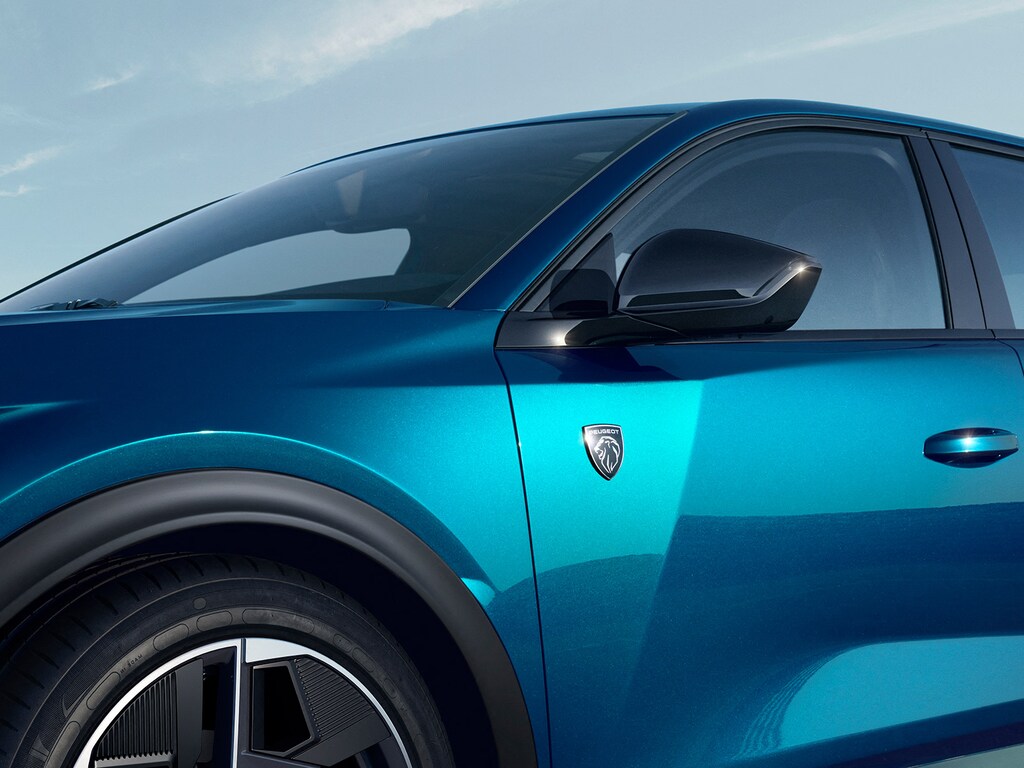
July 11, 2022
5 minute read
Interview with Marion Zandomeneghi (Colour and Material Designer at Peugeot / Body colour expert) and Etienne Jannin (Colour and Material Product Manager).

What motivates the creation of a new colour and how do you find the inspiration?
Marion Zandomeneghi: The birth of a colour most often corresponds to the launch of a new vehicle. The idea is to associate a colour with a specific model. The chosen colour will then be used for communication and marketing. Each stage of creation is the result of a collective effort between Product, Design and Technical departments. The teams are constantly on the lookout for trends in the automotive industry, but also in product design, furniture, architecture, fashion and now increasingly in digital culture.

What are the main steps in creating a colour?
Etienne Jannin: The brief issued explains all the intentions in terms of visibility and expressiveness for the brand and the product. It's about the messages that the colour should convey and how it will complement the range of other shades.
Marion Zandomeneghi: At the time of the brief, we don't yet have the silhouette because we get the first sketches later. Our job requires us to project ourselves with the volumes.
The process is punctuated by milestones where the evolution of the colour is presented to the various departments concerned. The options proposed are then gradually narrowed down until the final choice is made after customer tests. Towards the end of the selection process, the colour is mapped out on a reduced size model, even to scale 1 if necessary.
In parallel, we carry out research work with the painters. Tests are carried out in the booth to get as close as possible to the desired result. We then work with our industrial partners to make the colour achievable on a large scale, because nothing beats the real thing.

How did the latest colour, Obsession Blue, for the New 408 come about?
Marion Zandomeneghi: The New 408 has a striking and disruptive silhouette: a real novelty in the range. The Obsession Blue is also innovative: it is a dichroic shade. This means that the colour changes according to the light. We clearly wanted a blue that has different wavelengths at different angles.
In the light, unexpected shades of turquoise and green emerge. In the shadows, we switch to reds. This echoes the colours found in nature, like butterfly wings for example. We had never used a dichroic colour on a production car. On the other hand, we were already doing it on concept cars such as PEUGEOT Instinct, whose shade inspired the Obsession Blue of the New 408. It is complex to implement. We had to find the right compromise. The challenge was to retain the elegant and technical aspect without going overboard.

Work on the colour of PEUGEOT INSTINCT CONCEPT
How do you find the name of a colour?
Etienne Jannin: When we develop a colour, we think about a name that must be evocative. Ideally, the name arrives at the development stage, sometimes later via a research and validation process that approves lexical and legal conformity. At PEUGEOT, we are working to be more and more systemic in our names. For example, the colours that create a surprising and desirable effect, with a strong technical aspect, will go into a territory linked to ecstasy and surprise: Elixir Red, Vertigo Blue or Obsession Blue.

There's one car that we're starting to see more and more on the street: the New 308. Can you tell us more about the Olivine Green?
Marion Zandomeneghi: We had pre-identified the emergence of a major trend in green. For this model, we sought a green that was expressive but not too saturated. A green that supports the slender volume of a saloon like the New 308. We worked by adding gold effect pigments to the colour. When the light catches it, the golden hue stands out. "UNIQUE" being the car's launch slogan, we wanted a colour that would be in keeping with this spirit and that would accompany the brand's move upmarket. The customer tests were very positive and encouraged us, especially as green does not usually win over customers or the company.
Etienne Jannin: Sales of the 308 in Olivine Green represent around 20% of customer orders, a very important percentage for a green car. The objective has been achieved: indeed, the New 308 attracts attention in the street, and seduces with its unique look.
